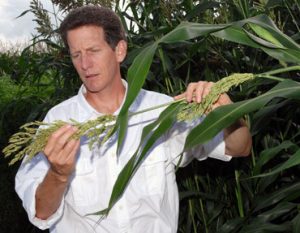Life Cycle Assessment Fundamentals

Free (limited time only)
Coming Soon: New LCA CourseWe are currently developing a brand new Life Cycle Assessment course for Engineering, Food, Feed, Livestock Industry, and Academia. The official course name is “Fundamental and Applications of Life Cycle Assessment” by Dr. Kurt Rosentrater, Iowa State University. The course is expected to launch in the 3rd Quarter of 2024. Sign up for our mailing list to learn when the new course is available.
|
Course Description
Life Cycle Assessment (LCA) has become a leading environmental assessment technique used by consumers, industry, and government. LCA is increasingly required by firms that wish to green their supply chain; LCA is part of the LEED “green building” certification, and life cycle results are now required by Federal renewable fuels legislation through the Revised Renewable Fuels Standard (RFS2). You will learn how LCAs are performed and how to interpret the results of such studies.
Learning Outcomes
Assessments
Course Outline
During this course, you will learn to:
- Understand the relationship between the product life cycle and environmental impact, resource conservation, and pollution prevention
- Interpret and evaluate an LCA study, understanding its strengths, weaknesses and appropriate use
- Perform a product LCA using publicly available data and software
- Understand the relationship of LCA to other assessment techniques: e.g., life cycle costing, carbon footprinting, and risk assessment.
There will be short eight quizzes (multiple-choice questions) at each module. You must receive 85% or above to pass each module. Retaking quizzes are allowed.
- Introduction and Overview to Life Cycle Assessment
- Goal and Scope
- Introduction to Life Cycle Inventory
- The Computational Structure of Life Cycle Inventory
- Economic Input-Output Life Cycle Inventory
- Impact Assessment
- Life Cycle Assessment Related Analysis
- Role of Critical Review
Course Procedures
The course begins on the date we receive your registration and payment. All course work must be completed within 12 months of that date. There is no enrollment fee for this course. The approximate time to complete this course is 15 hours. Once your registration information is received, Iowa State University Engineering-LAS Online will send you your username and password to access the course site. This course is free for a limited time only.
Complete the learning modules at your own pace. For each learning module, there will be a lecture video for you to watch and review.
Course Materials
Course materials are provided within the course.
Contact Information
Contact isopd@iastate.edu for more information.
Registration Cost: Free (for a limited Time)
Course Hours: 15 hours
Course Start Date: Upon Registration
Course Access Time: N/A
Continuing Education Units (CEUs): N/A
Instructor
Dr. Robert Anex
Dr. Robert Anex is currently a faculty member in the Department of Biological Systems Engineering at the University of Wisconsin. Dr. Anex holds a Ph.D. in Civil and Environmental Engineering from the University of California, Davis. Dr. Anex is an expert on Life Cycle Assessment (LCA) that evaluated product systems from “cradle-to-grave”. Dr. Anex led the LCA area within the Engineering Research Center for Biorenewable Chemicals (CBIRC) centered at Iowa State University. For more than a decade, Dr. Anex has served as an expert peer reviewer for life cycle assessment studies in the U.S. and Europe. Dr. Anex has served on the Science and Technology for Sustainability Subcommittee of the U.S. Environmental Protection Agency’s Board of Scientific Counselors providing expertise on life-cycle analysis of biorenewable and biobased product systems. He has been an invited speaker on LCA methods for the OECD, the U.S. Department of Agriculture, and the U.S. Department of Energy. Dr. Anex serves on the editorial board of the International Journal of Life Cycle Assessment and is an Associate Editor for the Journal of Industrial Ecology and Biotechnology for Biofuels.
